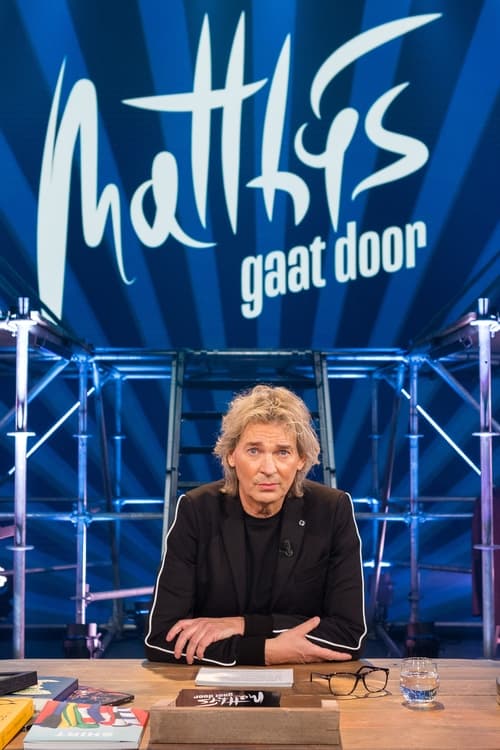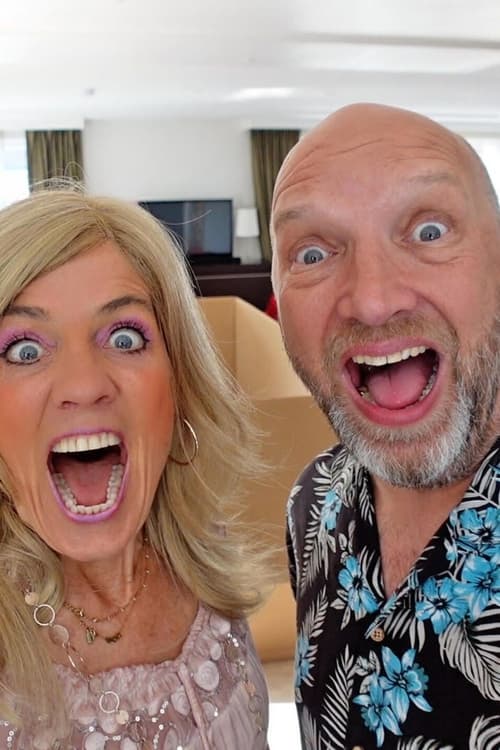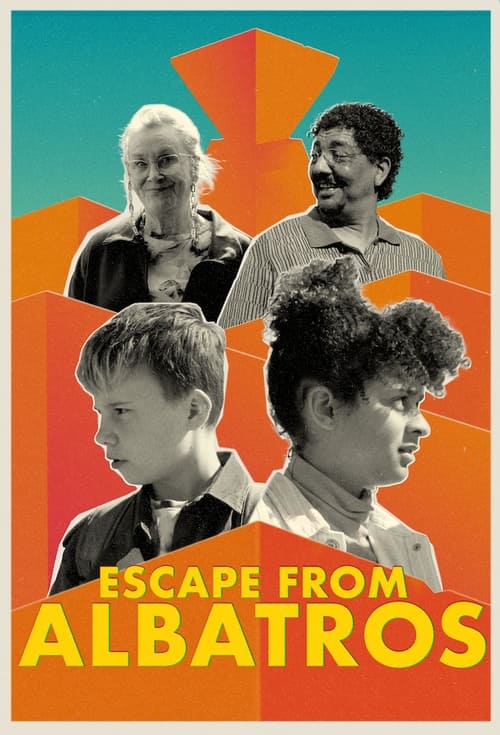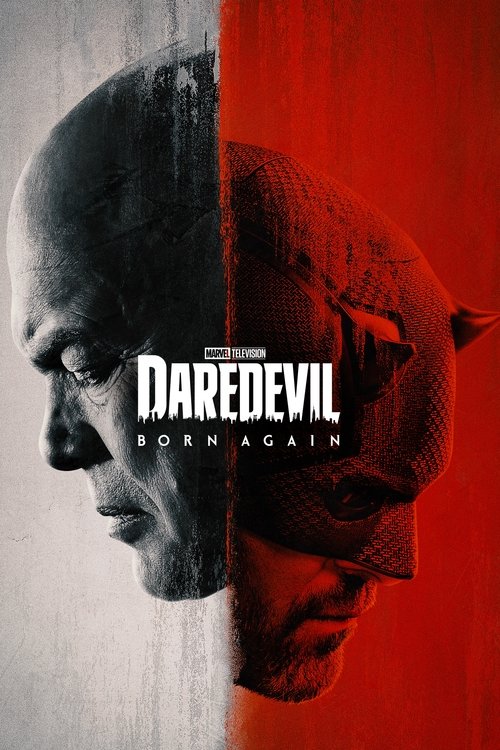
Ask Your Own Question
What is the plot?
In the opening scene of "Episode 7," Lisa is seen sitting at her kitchen table, staring blankly at a half-finished cup of coffee. The morning light filters through the window, casting a warm glow on her face, but her expression is one of deep contemplation. She is grappling with the aftermath of a recent confrontation with her estranged father, which has left her feeling conflicted and emotionally drained. As she absentmindedly stirs her coffee, her phone buzzes with a message from her best friend, Mia, asking if they can meet to talk.
The scene shifts to a local café where Lisa and Mia meet. The café is bustling with activity, and the aroma of freshly brewed coffee fills the air. Lisa, still visibly shaken, shares her feelings about her father's sudden reappearance in her life. Mia listens intently, offering support but also urging Lisa to confront her father about the pain he caused her. Lisa's internal struggle is evident as she weighs the possibility of reconciliation against the fear of being hurt again.
Later, Lisa decides to visit her father, who is staying at a nearby hotel. The atmosphere is tense as she approaches the hotel entrance, her heart racing. She hesitates for a moment before stepping inside, the sound of her footsteps echoing in the quiet lobby. When she reaches his room, she knocks, and after a brief pause, her father opens the door. The initial reunion is awkward, filled with unspoken words and lingering resentment. Lisa's father tries to explain his absence over the years, but Lisa interrupts, demanding answers about why he left.
As the conversation unfolds, emotions run high. Lisa's father expresses regret, but Lisa struggles to accept his apologies. She feels a mix of anger and sadness, and her voice trembles as she confronts him about the impact of his absence on her life. The tension escalates when Lisa accuses him of being selfish, and her father, feeling cornered, raises his voice in defense. The argument reaches a boiling point, and Lisa storms out of the hotel room, tears streaming down her face.
The next scene takes place at Lisa's workplace, where she is trying to focus on her tasks but is clearly distracted. Her co-workers notice her distress, and one of them, Sarah, approaches her to ask if she's okay. Lisa forces a smile but ultimately breaks down, sharing the details of her confrontation with her father. Sarah offers her a listening ear and suggests that Lisa should consider what she truly wants from her relationship with her father. This moment of vulnerability allows Lisa to reflect on her feelings and the possibility of forgiveness.
Later that evening, Lisa attends a family gathering at her mother's house. The atmosphere is lively, filled with laughter and chatter, but Lisa feels out of place. She watches her family interact, feeling a sense of longing for the connection she has been missing. During dinner, her mother notices Lisa's distant demeanor and gently probes her about what's bothering her. Lisa hesitates but eventually opens up about her father's return and the emotional turmoil it has caused her. Her mother listens with empathy, sharing her own experiences of dealing with loss and forgiveness.
As the night progresses, Lisa steps outside for some fresh air. The cool breeze calms her racing thoughts, and she reflects on her mother's words. In this moment of solitude, she realizes that she has the power to choose how to move forward. She decides to give her father another chance, not for his sake, but for her own peace of mind.
The following day, Lisa reaches out to her father, asking to meet again. They agree to meet at a park, a neutral ground that feels less intimidating. When they sit down on a bench surrounded by blooming flowers, the atmosphere is still charged with unresolved tension. Lisa takes a deep breath and begins to express her feelings more calmly this time, explaining how his absence affected her life choices and relationships.
Her father listens intently, and for the first time, Lisa sees genuine remorse in his eyes. He shares his own struggles and regrets, revealing the reasons behind his departure. The conversation gradually shifts from confrontation to understanding, as both begin to acknowledge their pain. Lisa's heart softens as she sees her father's vulnerability, and she realizes that healing is possible.
As they part ways, Lisa feels a sense of relief wash over her. She knows that rebuilding their relationship will take time, but she is willing to try. The episode closes with Lisa walking away from the park, a small smile on her face, symbolizing hope and the beginning of a new chapter in her life.
What is the ending?
In the ending of "Lisa," Season 2, Episode 7, Lisa confronts her fears and insecurities, leading to a pivotal moment of self-acceptance. The episode culminates in a heartfelt reunion with her estranged friend, where they reconcile their differences and reaffirm their bond. The episode closes with Lisa feeling empowered and ready to embrace her future.
As the episode unfolds, we begin with Lisa sitting alone in her room, surrounded by remnants of her past. The walls are adorned with photographs of happier times, but her expression is one of deep contemplation and sadness. She reflects on her journey, the mistakes she has made, and the relationships she has strained. The camera lingers on her face, capturing the turmoil within her as she grapples with feelings of inadequacy and loneliness.
Scene transitions to a bustling café where Lisa's estranged friend, Mia, is working. Mia is seen serving customers with a forced smile, but her eyes betray her own struggles. The tension between them is palpable, as both women have been avoiding each other since their fallout. Lisa, mustering her courage, decides to visit the café, her heart racing as she steps inside. The bell above the door jingles, drawing Mia's attention. Their eyes meet, and a moment of silence hangs in the air, thick with unspoken words.
Lisa approaches Mia, her voice trembling as she apologizes for her past behavior. Mia, initially defensive, listens as Lisa pours out her heart, expressing her regrets and the pain of their separation. The scene is charged with emotion, as both women confront their vulnerabilities. Mia's facade begins to crack, revealing her own feelings of hurt and betrayal. The café around them fades into the background, emphasizing the significance of their conversation.
As they talk, the camera captures close-ups of their faces, highlighting the tears that well up in their eyes. Lisa's determination to mend their friendship shines through, and she shares how much Mia means to her. Mia, moved by Lisa's sincerity, begins to soften. The tension dissipates as they reminisce about their shared memories, laughter breaking through the heaviness of the moment.
In a pivotal scene, Mia reveals her own struggles, admitting that she has felt lost without Lisa. This moment of vulnerability creates a bridge between them, allowing for a genuine connection to be rekindled. They embrace, tears flowing freely as they acknowledge the pain of their separation and the importance of their friendship. The café, once a backdrop of tension, transforms into a sanctuary of healing.
The episode concludes with Lisa and Mia walking out of the café together, their laughter echoing in the air. The sun shines brightly, symbolizing a new beginning for both women. Lisa's posture is more confident, her smile radiant as she embraces the future with renewed hope. The camera pulls back, capturing the two friends walking side by side, ready to face whatever challenges lie ahead, united once more.
In this ending, Lisa emerges as a character who has faced her fears and taken responsibility for her actions. Mia, too, finds strength in vulnerability, showcasing the power of forgiveness and the importance of friendship. The episode closes on a note of optimism, leaving viewers with a sense of closure and the promise of new beginnings for both characters.
Is there a post-credit scene?
In "Episode 7" of "Lisa," there is indeed a post-credit scene that adds an intriguing layer to the episode's narrative.
As the credits roll, the screen fades back in to reveal a dimly lit café where Lisa is sitting alone at a corner table, her expression contemplative. The atmosphere is quiet, with soft jazz music playing in the background, creating a reflective mood. She stares into her coffee cup, swirling the liquid absentmindedly, lost in thought.
Suddenly, the door swings open, and a familiar figure enters--the character of Max, who has been a significant presence in Lisa's life throughout the series. He spots her and approaches with a hesitant smile, his eyes filled with a mix of concern and warmth.
"Hey, I thought I might find you here," he says, taking a seat across from her. Lisa looks up, her expression shifting from introspection to surprise, and then softening as she meets his gaze.
The conversation begins with light banter, but it quickly deepens as they discuss the events of the episode, particularly Lisa's struggles and the choices she has made. Max's supportive demeanor contrasts with Lisa's vulnerability, and the scene captures the tension between her desire for independence and her need for connection.
As they talk, the camera slowly zooms in on Lisa's face, revealing the flicker of hope in her eyes as she contemplates the possibility of moving forward. The scene ends with a lingering shot of their hands almost touching on the table, symbolizing the unspoken bond between them, before fading to black.
This post-credit scene not only serves as a poignant conclusion to the episode but also sets the stage for potential developments in their relationship, leaving viewers with a sense of anticipation for what lies ahead.
How does Lisa's relationship with her best friend evolve in this episode?
Throughout the episode, Lisa's friendship with her best friend is tested as they navigate a misunderstanding that arises from a secret Lisa has been keeping. The tension culminates in a heartfelt conversation where both characters express their fears of losing each other, ultimately strengthening their bond.
What significant event occurs between Lisa and her estranged father in this episode?
In this episode, Lisa confronts her estranged father during a family gathering, leading to a heated argument that reveals deep-seated emotions and unresolved issues from her childhood. This confrontation forces Lisa to confront her feelings of abandonment and the impact it has had on her relationships.
What role does the new character introduced in this episode play in Lisa's life?
A new character, a mentor figure, is introduced in this episode who challenges Lisa to pursue her dreams more aggressively. This character serves as a catalyst for Lisa's personal growth, pushing her to take risks and reassess her priorities.
How does Lisa cope with the stress of her job in this episode?
In this episode, Lisa struggles with the pressures of her job, leading her to seek solace in creative outlets like painting. This artistic expression becomes a crucial part of her coping mechanism, allowing her to process her emotions and find clarity amidst the chaos.
What pivotal decision does Lisa make regarding her career by the end of the episode?
By the end of the episode, Lisa makes a pivotal decision to leave her current job in pursuit of a more fulfilling career path. This decision is fueled by her realization of what truly makes her happy, marking a significant turning point in her character development.
Is this family friendly?
In "Lisa," season 2, episode 7, there are several elements that may be considered objectionable or upsetting for children or sensitive viewers.
-
Emotional Conflict: The episode features intense emotional scenes where characters confront personal struggles, which may be distressing for younger audiences.
-
Family Tension: There are moments of conflict between family members that could be uncomfortable, showcasing arguments or misunderstandings that might resonate negatively with sensitive viewers.
-
Themes of Loss: The episode touches on themes of loss and grief, which could be heavy for children or those who have experienced similar situations.
-
Mature Discussions: Some conversations may include mature themes or language that might not be suitable for younger viewers.
-
Visuals of Distress: There are scenes that depict characters in distressing situations, which could be visually upsetting.
These aspects contribute to a more mature viewing experience, and parental discretion is advised for younger audiences.

































